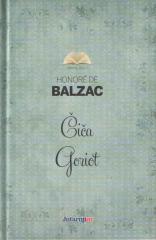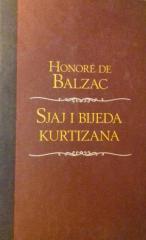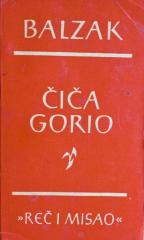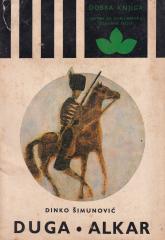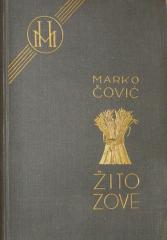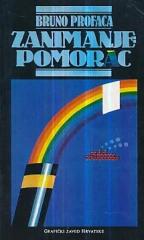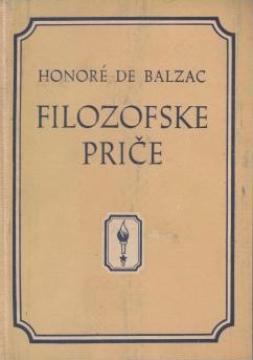
Filozofske priče
Filozofske priče su deo Balzakove „Ljudske komedije“ i obuhvataju četiri priče – Šangri-La, Eliksir dugog života, Nepoznato remek-delo i Melmot Pokajnik – koje istražuju filozofske, moralne i metafizičke teme kroz složene likove i simboliku.
Ove priče kombinuju Balzakovu sposobnost da realistično prikaže ljudsku prirodu sa metafizičkim pitanjima o želji, umetnosti, smrtnosti i moralu. Njegov stil je bogat, simboličan i duboko introspektivan, što ove priče čini bezvremenskim istraživanjem ljudskog stanja.
Šangri-La koža: Mladi Rafael de Valentin, očajan i siromašan, dobija magičnu Šangri-La kožu koja ispunjava svaku želju, ali mu skraćuje životni vek. Balzak istražuje pohlepu, moć želje i cenu materijalizma. Rafaelova opsesija bogatstvom i zadovoljstvom vodi ga do tragičnog kraja, gde shvata da pravo zadovoljstvo leži izvan materijalnog.
Eliksir dugog života: Priča se bavi Don Žuanom, koji pokušava da prevari smrt koristeći eliksir koji mu je ostavio otac alhemičar. Međutim, eliksir deluje samo delimično, oživljavajući samo delove njegovog tela, što dovodi do grotesknog raspleta. Ovde Balzak dovodi u pitanje ljudsku opsesiju besmrtnošću i granice nauke.
Nepoznato remek-delo: Slikar Frenhofer godinama radi na savršenoj slici, ali njegova opsesija savršenstvom dovodi do uništenja dela. Kroz priču, Balzak istražuje umetničku strast, iluziju savršenstva i sukob između stvarnosti i ideala. Frenhoferova slika, nevidljiva drugima, simbolizuje nemogućnost postizanja apsolutne vizije.
Melmot Pokajnik: Inspirisana Maturinovim romanom, priča prati Melmota, čoveka koji je sklopio pakt sa đavolom za večni život, ali traži nekoga ko će preuzeti njegov teret. Upoznaje Kastanjea, bankara koji se suočava sa moralnim dilemama. Ovde Balzak ispituje iskušenje, greh i mogućnost iskupljenja.
Two copies are available
